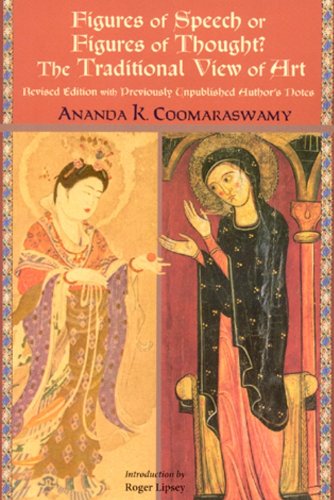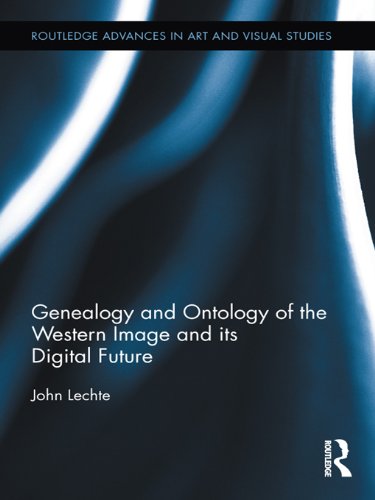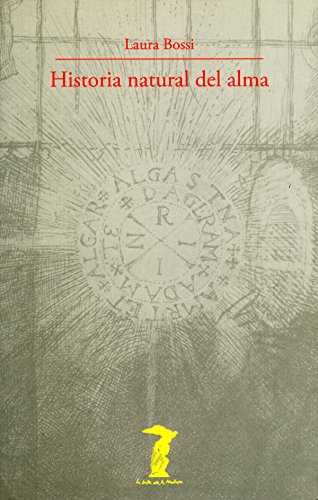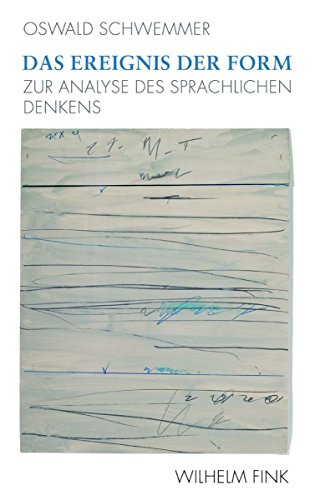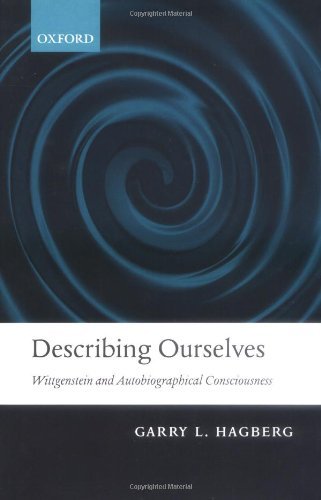
By Garry L. Hagberg
Garry L. Hagberg undertakes a ground-breaking philosophical research of chosen autobiographical writings--among the simplest examples we've got of human selves exploring themselves--as they forged new and designated gentle at the critique of mind-body dualism and its undercurrents specifically and at the nature of autobiographical realization extra ordinarily. The chapters take in in flip the themes of self-consciousness, what Wittgenstein calls 'the internal picture', psychological privateness and the image of metaphysical seclusion, the very concept of our commentary of the contents of recognition, first-person expressive speech, reflexive or self-directed idea and competing images of introspection, the nuances of retrospective self-understanding, person-perception and the corollary problems with self-perception (itself an apparently risky phrase), self-defining reminiscence, and the healing perception of philosophical growth because it applies to all of those concerns.
The forged of characters interwoven all through this wealthy dialogue comprise, as well as Wittgenstein centrally, Augustine, Goethe, Dostoevsky, Kierkegaard, Iris Murdoch, Donald Davidson, and Stanley Cavell, between others. all through, conceptual clarifications pertaining to brain and language are placed to paintings within the research of concerns when it comes to self-description and in novel philosophical readings of autobiographical texts.
Read Online or Download Describing Ourselves: Wittgenstein and Autobiographical Consciousness PDF
Similar aesthetics books
This new version of Coomaraswamy's vintage publication, thought of his most vital paintings at the philosophy of paintings, comprises the entire revisions Coomaraswamy had desired to upload to the unique edition.
With the rising dominance of electronic know-how, the time is ripe to think again the character of the picture. a few say that there's now not a gorgeous photograph, basically disembodied info (0-1) ready to be configured. For images, this means religion within the precept of an "evidential strength" – of the impossibility of doubting that the topic was once ahead of the lens – isn't any longer believable.
Historia natural del alma (La balsa de la Medusa nº 164) (Spanish Edition)
En los albores del tercer milenio se ha obviado el alma. Los poetas y los artistas, en una curiosa sustitución, ya sólo se interesan por su doble, el cuerpo, soma, que antaño significaba el cuerpo «inanimado», sin vida, el cadáver. Los filósofos parecen pensar que se trata de un tema que ya es historia, apenas útil para las antologías.
Das Ereignis der Form: Zur Analyse des sprachlichen Denkens (German Edition)
Sprechen und Denken - ein schwieriges Verhältnis. Wie formt die Sprache unser Denken, und used to be gewinnen und used to be verlieren wir dabei? Nicht alles Denken ist sprachliches Denken. Bilder und Klänge, Geräusche und Gefühle, Gesichter und Gebärden und vieles andere mehr: all dies taucht in unseren Vorstellungen auf und mischt sich in unser Denken ein.
- Creative License: The Art of Gestalt Therapy
- A History of Light: The Idea of Photography
- Friedrich Schlegel and the Emergence of Romantic Philosophy (SUNY series, Intersections: Philosophy and Critical Theory)
- Art and Enlightenment: Scottish Aesthetics in the 18th Century: 6 (Library of Scottish Philosophy)
Additional resources for Describing Ourselves: Wittgenstein and Autobiographical Consciousness
Example text
